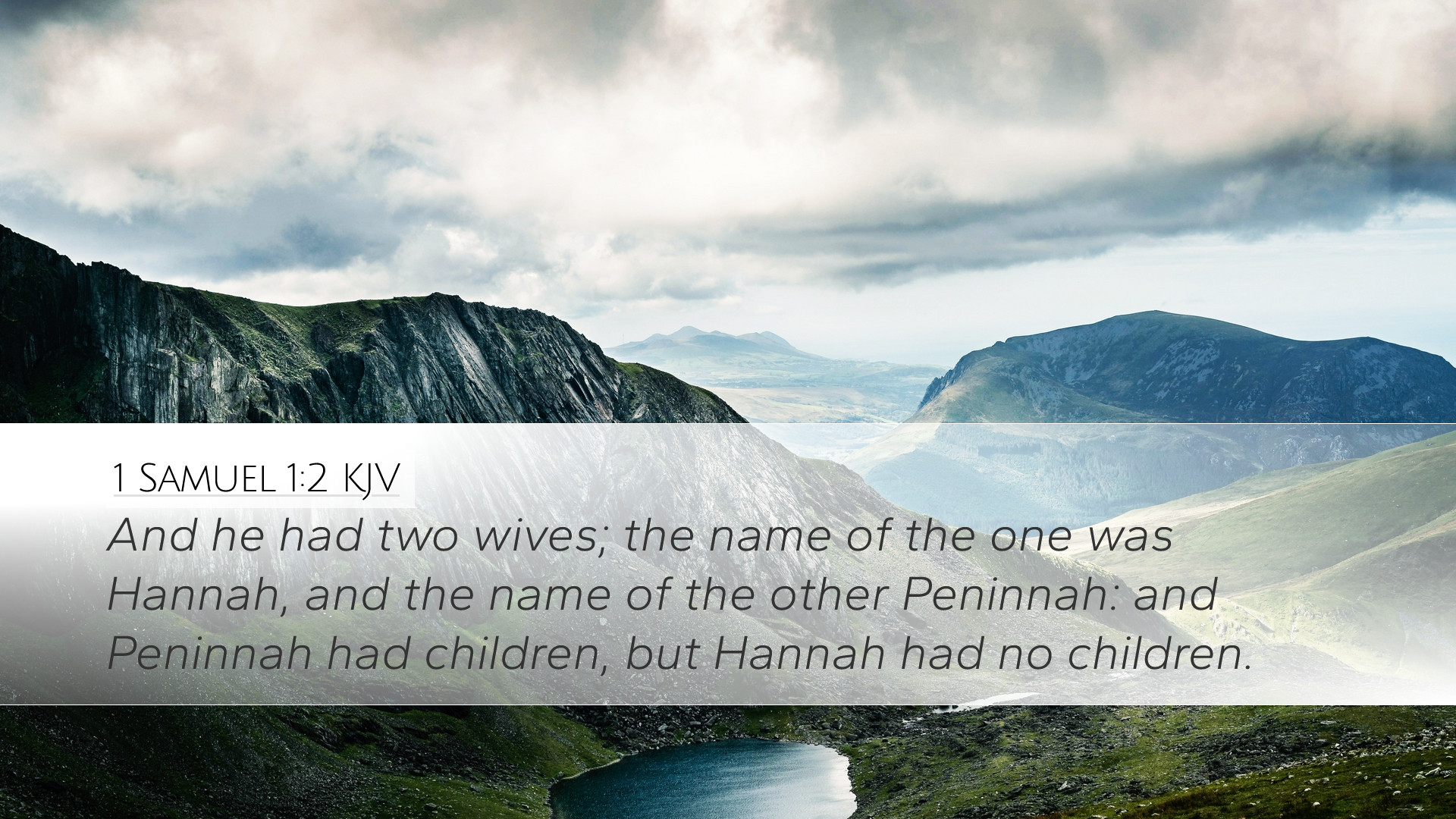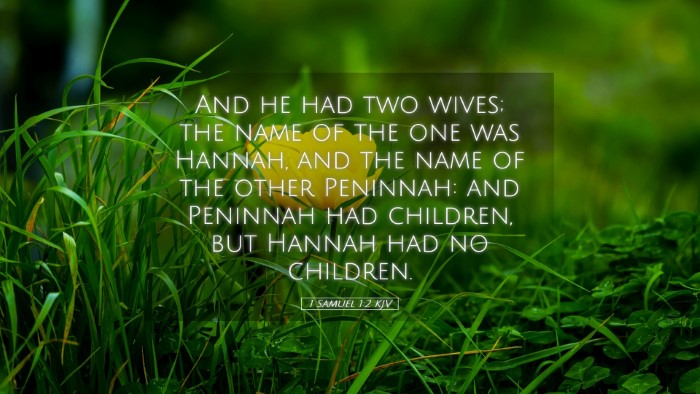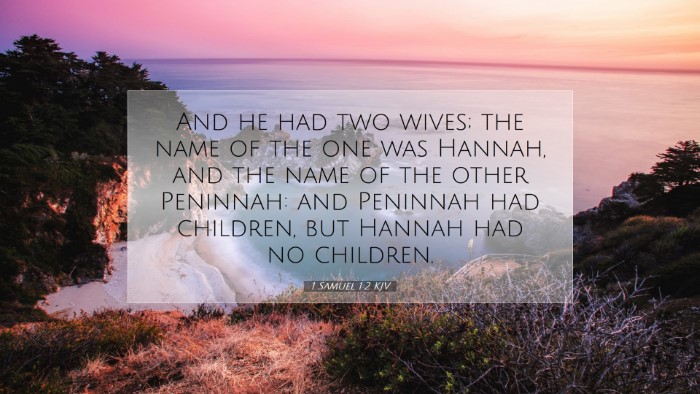Commentary on 1 Samuel 1:2
Bible Verse: "And he had two wives; the name of the one was Hannah, and the name of the other Peninnah: and Peninnah had children, but Hannah had no children." (1 Samuel 1:2)
Contextual Background
The book of 1 Samuel stands at a pivotal point in Israel's history, transitioning from the era of the judges to the establishment of the monarchy. Chapter 1 introduces us to Elkanah, a Levite, whose family situation reflects the complexities of this transitional period. This verse sets the stage not only for a historical narrative but also for deeper theological themes that reveal God's providential workings through ordinary lives.
Character Analysis
The characters in this passage are integral to understanding the text. Let’s examine them:
- Elkanah: A devoted worshiper who brings his family to Shiloh for sacrifices. His character reflects the struggles of living in a society that often overlooked the spiritual needs of Israel.
- Hannah: Portrayed as a deeply pious woman whose barrenness becomes a source of profound emotional distress. Her plight speaks to the societal stigma surrounding infertility and the longing for offspring in ancient Israel.
- Peninnah: The second wife, who represents social success by bearing children. Her rivalry with Hannah highlights the cultural pressures and personal hostilities inherent in polygamous relationships.
Theological Implications
The polygamous context of Elkanah's family raises various theological discussions. Matthew Henry notes that while polygamy was culturally accepted, it was not divinely sanctioned, echoing Genesis's narrative of one man and one woman. This sets a tone for the inherent conflict that arises within the family because of human sin and societal disarray.
Albert Barnes emphasizes that Hannah's barrenness is both a personal trial and a divine setting for future acts of redemption. God often uses conditions of distress to orchestrate His plans, underscoring His sovereignty and grace. Hannah's story begins with despair but promises the unfolding of hope and purpose through her son, Samuel.
The Role of Women
This text provides insight into the role and perception of women. Adam Clarke notes that Hannah’s situation allows readers to explore the rich theological dimension of awaiting God's intervention. Women's voices, especially in moments of despair, are foundational to the Biblical narrative, illustrating their complexity and depth of faith amidst societal expectations.
Hannah's significance extends beyond her initial barrenness, serving as a pivotal figure through whom God changes the course of Israel's history. The narrative encourages understanding the value of women as agents of God's purposes.
Social Commentary
The rivalry between Hannah and Peninnah serves as a social commentary on the nature of human relationships. Their interactions reflect a conflict that extends beyond personal rivalry to embody societal norms regarding fertility and familial pressure.
Even amidst strife, the character of Elkanah is significant. His attempts to comfort Hannah amid her pain reflect a compassionate husband, yet he also illustrates the limitations men faced in understanding women’s struggles, often inadequately addressing the emotional turmoil barrenness entails.
God's Sovereignty and Human Limitations
This passage invites readers to meditate on the intersection of divine sovereignty and human frailty. Hannah's longing for a child is steeped in cultural significance, as children were seen as a measure of God's blessing. Her situation brings to light the broader questions of faith, trust, and the waiting upon God during times of distress.
Henry points out that while men may seek to fulfill their desires and societal expectations, God's timing often contradicts human understanding. The intertwining of Hannah’s suffering with God’s sovereign plan exemplifies how hardship can precede divine answers.
The Significance of Prayer
As the narrative progresses, Hannah’s response to her barrenness through prayer reveals the power of supplication. It leads to a deepened relationship with God, which ultimately culminates in the birth of Samuel. Both Barnes and Clarke emphasize the importance of prayer, showing that it is through Hannah’s fervent prayer that she embarks on a journey of spiritual fulfillment.
Conclusion
1 Samuel 1:2 serves as a profound introduction to themes of longing, rivalry, and divine providence. It invites introspection into the character of God and His workings through an imperfect yet faithful few. The narrative of Elkanah, Hannah, and Peninnah offers timeless insights for pastors, students, and theologians alike, encouraging a deeper understanding of how God renews hope amidst despair. This text invites the faithful to observe that what begins in barrenness can culminate in spiritual fruitfulness as they trust in God's promises.


